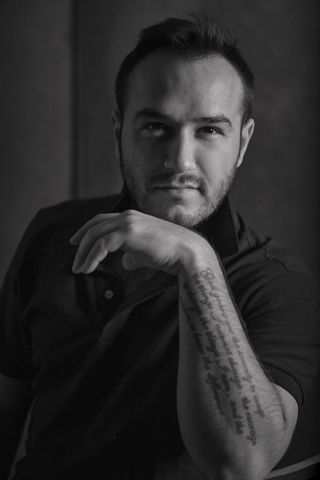Environment
Food, Sustainability, and Joy
Food introduced the joy of sustainability to me. A food entrepreneur helped.
Posted January 13, 2020
Food was my main entry to sustainability.
One day, I noticed how much garbage I produced and how much came from food. I decided not to accept polluting others' worlds, or at least to try.
It was 2014. Somehow I challenged myself to avoid buying packaged food for a week. Frankly, I didn't think I'd make it. Could I?
I felt confused and helpless. What would I eat? What if I failed? Would my food become boring?
I made it two-and-a-half weeks, enough time to develop confidence cooking from scratch. After the experiment, I returned to using packaging but eliminated what I could. I normally filled about one load of trash a week then.
Five years of practice
With years of practice eliminating, I only filled one load in 2019, one in 2018, and one in 2017. I'm shooting not to fill a load in 2020 and 2021. I've blogged about the challenge, made a video of my first time crossing one year without filling a load, and gave two TEDx talks on it.
Little did I know that I would save money and time, become more social, and be invited by single moms in food deserts who found how I cooked more accessible for their families to teach their communities.
My main discovery: Sustainability brings joy, community, and connection, not the deprivation and sacrifice I expected. The more I act, the more I want to act.
Food, sustainability, and joy
The connection between food, sustainability, and joy isn't obvious to all.

Chris Schembra is a friend and early inspiration for going beyond turning simple dinners into fun community events. He has been hosting dinners completely taking over his and his girlfriend's basement studio apartment on combating loneliness, building community, expressing gratitude, and leading.
While he still hosts dozens of guests at a time, he's built a business of global corporate training and team-building engagements.
The community and emotional growth his dinners created inspired me to develop mine, and his project's growth showed me my potential, I wanted to share what made his
Meet Chris
Josh: So we can picture a professional dinner of yours, how many people attend, do they know each other, is it at a restaurant, apartment, or rented space?
Chris: Our dinners are a strict 18 people. They not only work when people have known each other their entire lives but when it's 18 strangers meeting for the first time. We take over third-party residential venues in order to create that family-style feel. Restaurants can't guarantee privacy or intimacy. They want to rush you in and out, which undermines the experience at our dinners. Safety and privacy are paramount.
Josh: You ask a core question that forms the basis of your dinners. What is it?
Chris: We ask: If you could give credit or thanks to one person in your life that you don't give enough credit or thanks to, who would that be?
We've found that this question invites people to share stories of people they've encountered that helped them get to where they are today. It's easier to answer than ones like: what's your biggest fear?, your biggest failure?, your greatest regret? Those types of questions make people clam up. Ours leads people to share a story not necessarily about themselves. It’s a shortcut to vulnerability we call, “Third Party Vulnerability”.
Josh: It evolved from other questions. How and why did it evolve here?
Chris: It evolved from seeing its massive emotional impact on our attendees. Questions that would elicit knee jerk or prepared responses inhibited emotional vulnerability. But we saw this question give people permission to share stories of overcoming fear, personal liberation, regret, shame, pride, and inspiration. If less than six people cry, we consider it a failed night.
This question is centered around gratitude. Giving people gratitude for their pasts in a small group systematically and consistently builds empathy, which we all crave in today's digital, disconnected world. Now we’re known for it.
Josh: You don't just ask it when they walk in the door. What builds to it and why?
Chris: Think of our dinner as a three-act play. The communal discussion part is in Act Three. The most important part of our evening occurs in the middle of Act Two, at 7:47 pm when we delegate 11 specific tasks, inviting the attendees to share in the group experience and serve each other. By coordinating shared activities, you remove ego, balance the hierarchy, and create a safe space that makes people want to participate. That preparation sets the scene for the vulnerability that comes through the gratitude question.
Josh: What are some unexpected results?
Chris: As we mentioned above, if less than six people cry, we considered it a failed night. We average about 10 per night. We could have never predicted such a benchmark for success. But using this question to spark over 400,000 relationships around the dinner table showed us that it can be the exact moment of transformation and awakening people need.
Hearing stories of regret or shame or liberation often inspires people to quit jobs to pursue lives of passion or create a new romantic relationship with someone that they've known for a while. They'll say yes to an opportunity that has been circulating around them that they couldn't see before they emotionally unblocked.
We've seen people come out gay around the dinner table. We've seen people forgive their mothers. We've seen people visit grave sites of the person that they wish they could have just five more minutes of time with.
Josh: You talk about people feeling lonely and expressing gratitude like I talk about people feeling powerless and having them share their passions and acting on them.
Chris: The Surgeon General of the United States put out a study showing that 51% of the American workforce reports consistent loneliness. Loneliness is equivalent to the reduction of lifespan by smoking 15 cigarettes per day, which takes seven years off your life.
We live in a Cartesian world of, “I think, therefore I am," that creates a disconnect that makes people only try to fend for themselves. Social media pretends that it connects but actually isolates and creates competition among peers. Coming to our dinners and revealing a part of yourself you've never shown decreases your loneliness. You start to connect with people on values and shared beliefs. That's what creates joy.
Lessons
My immediate lesson is that I can cook much more sustainably and build a project around it. Great lessons, but far from my more far-reaching lesson.
My big lesson is that if I am frustrated at how to act on the environment, focusing on what I care about and role models I know sustain my actions and the environment most.
Next steps
Having learned from Chris how to grow dinners, my next step is to expand my dinners from two-to-four person events to bigger.
Chris,' I hope, is to reduce his packaging and single-use plates and cutlery.




